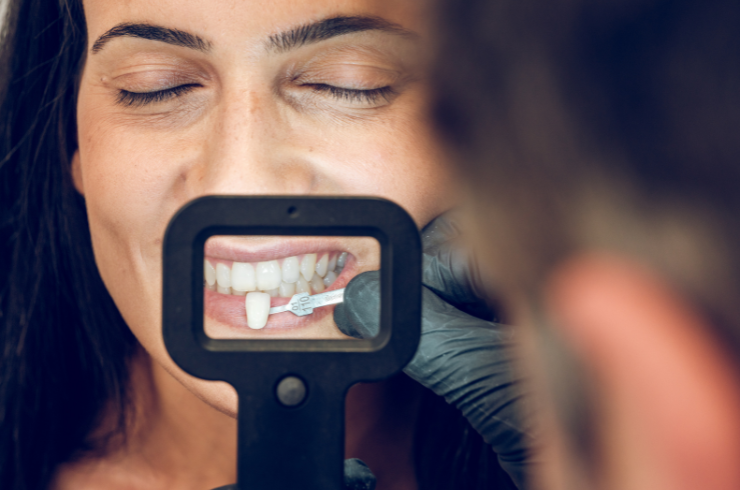
Dental veneers are thin, custom-made shells designed to cover the front surface of teeth, enhancing their appearance. Veneers are typically made from porcelain or composite resin and are bonded to the teeth to improve their color, shape, size, or length. They are a popular cosmetic dentistry solution for achieving a brighter, more symmetrical smile.
When Are Dental Veneers Needed?
Dental veneers are often recommended for:
Types of Veneers
The Dental Veneer Procedure
Benefits of Dental Veneers
Aftercare and Maintenance
To keep your veneers looking their best, practice good oral hygiene by brushing and flossing regularly. Avoid biting hard objects like ice or fingernails, and limit foods that can cause staining, like coffee or red wine. Regular dental check-ups are essential to monitor the health of your veneers and the underlying teeth.